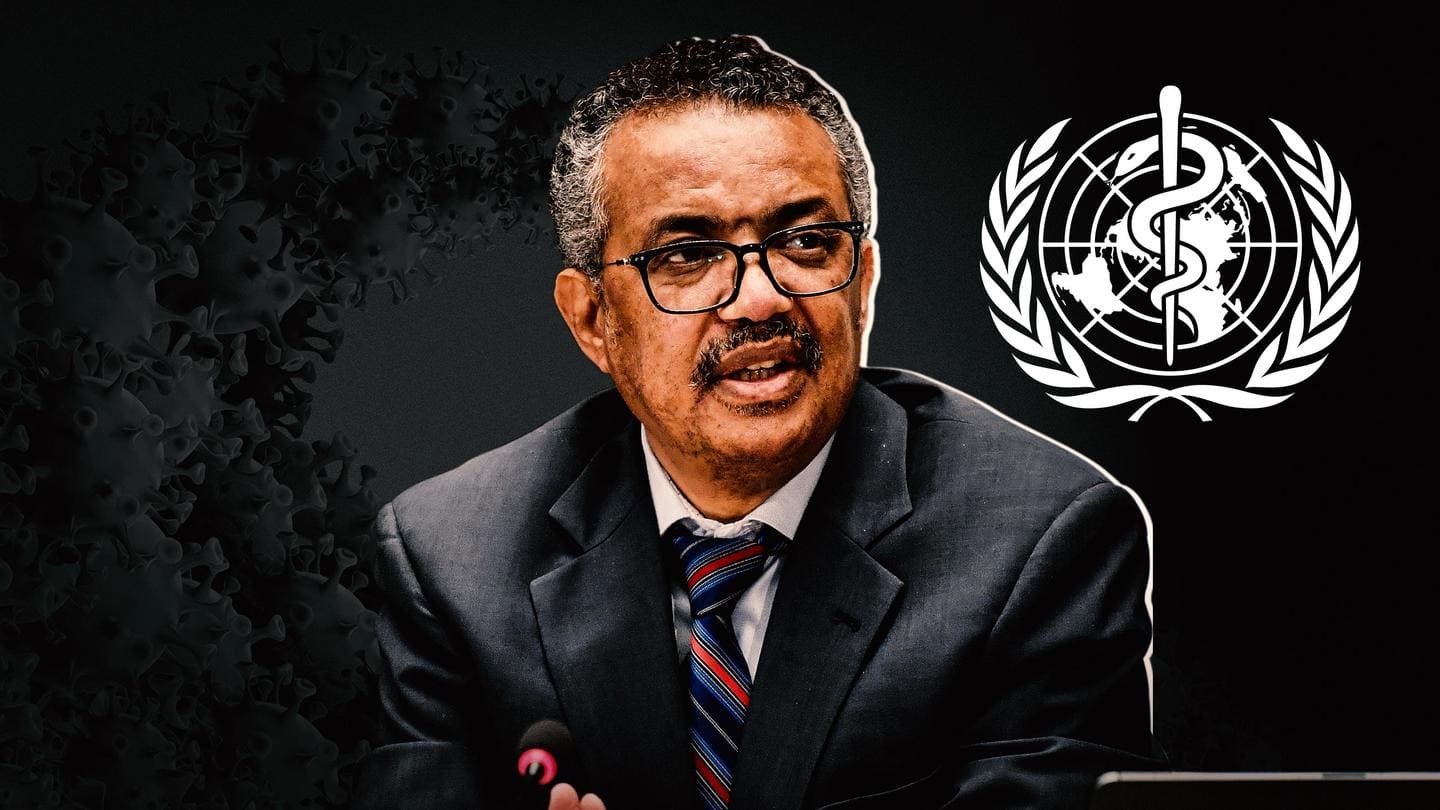
We're in early stages of third COVID-19 wave: WHO chief
What's the story
Sounding alarm over the rising Delta variant cases of COVID-19, World Health Organization (WHO) Director-General, Dr. Tedros Adhanom Ghebreyesus, on Thursday warned the world the pandemic is now in the "early stages" of the third wave. He added the Delta variant spread coupled with rising social mobility and inconsistent use of proven public health/social measures is triggering the surge in infections and deaths globally.
Alarming situation
Declining trend in COVID-19 numbers now being reversed: Ghebreyesus
"Unfortunately...we are now in the early stages of a third wave," the WHO chief was quoted as saying in a UN News report. Ghebreyesus further expressed concern that the sustained declining trend in the overall number of COVID-19 infections and deaths in recent months as a result of increasing vaccination rates in North America and Europe is now being reversed.
Virus variants
Virus continuing to evolve, resulting in more transmissible variants
Ghebreyesus said the COVID-19-causing virus—SARS-CoV-2—is evolving continuously, leading to more transmissible variants. He said, "The Delta variant is now in more than 111 countries...we expect it to soon be the dominant COVID-19 strain circulating worldwide if it isn't already." To note, COVID-19 cases have been on the rise consecutively for the last four weeks in five WHO regions while deaths have also been increasing.
Two-track pandemic
Disparity in global vaccine distribution led to two-track pandemic
The WHO chief also drew the attention of the agency's Emergency Committee on COVID-19 to the "shocking disparity" in vaccine distribution globally and the unequal access to life-saving tools. He said this inequality led to a two-track pandemic: one track for nations with the greatest access to vaccines that are lifting restrictions, and the second for others left "at the mercy of the virus."
Vaccination
Many countries still have not received any vaccines: Ghebreyesus
Ghebreyesus further said there are many countries that have still not received any vaccines to fight COVID-19 spread, while most nations did not receive enough doses. He also reiterated the WHO's appeal for a "massive push" to inoculate at least 10% of the entire population in every country by September, 40% by 2021-end, and 70% by mid-2022.
Importance
A tailored and consistent approach to stop the pandemic
Ghebreyesus stressed that vaccines alone cannot stop the pandemic and asked countries to adopt a "tailored and consistent approach" to fight COVID-19. This includes utilizing the available public health/social measures and having a comprehensive risk management approach to address mass gatherings. "So many countries around the world have shown that this virus can be stopped and contained with these measures," he said.